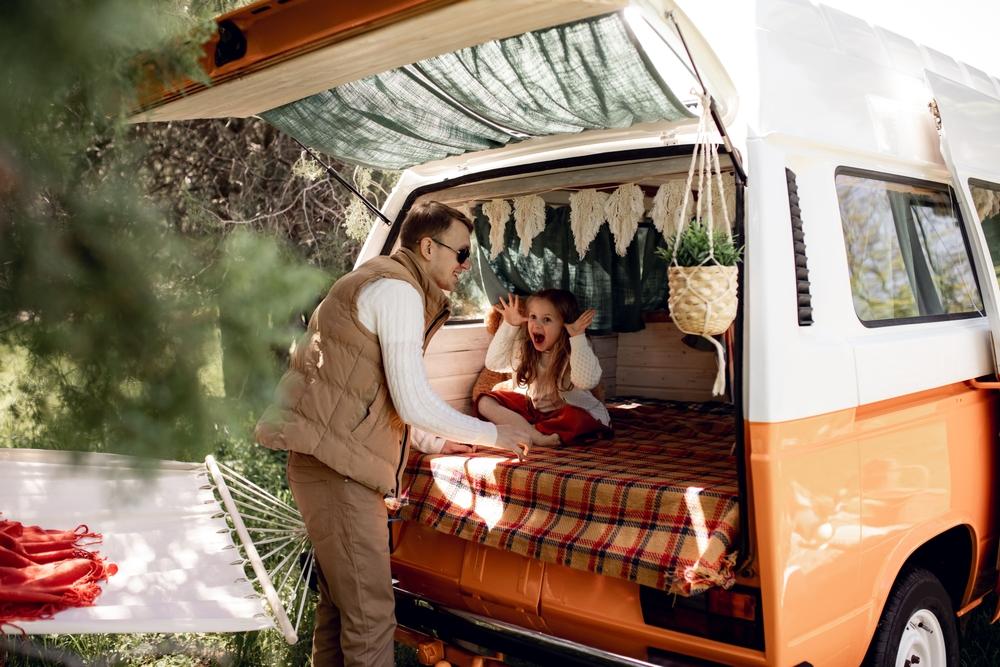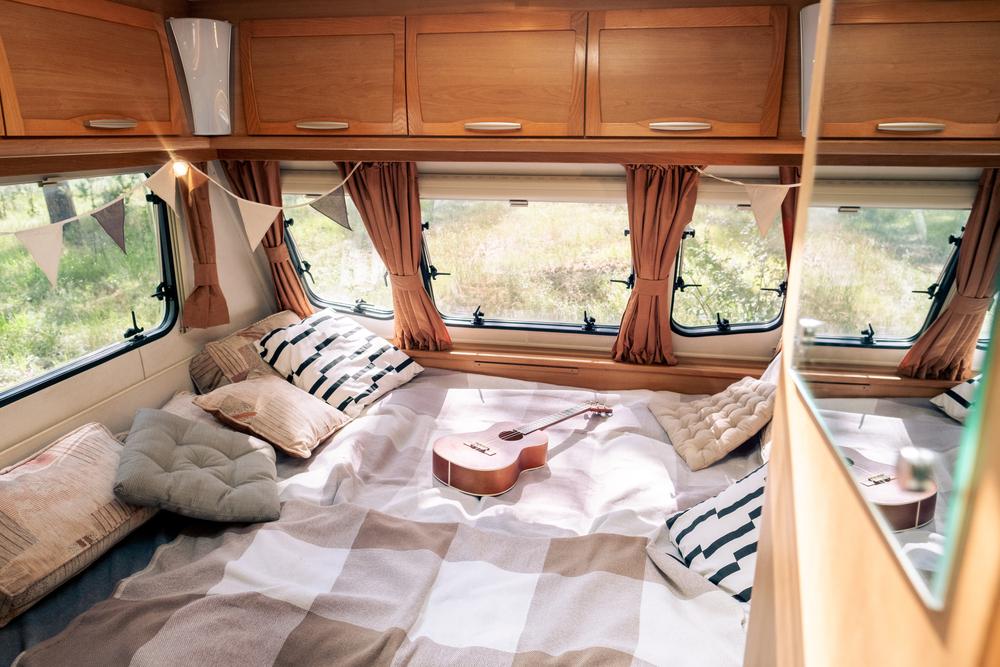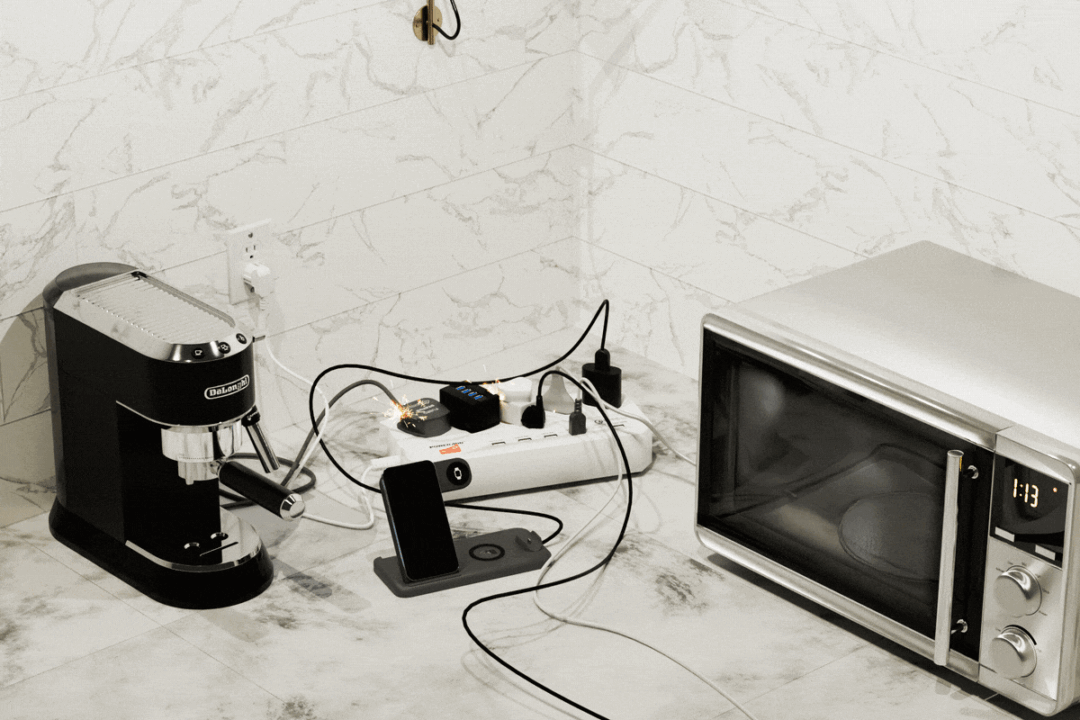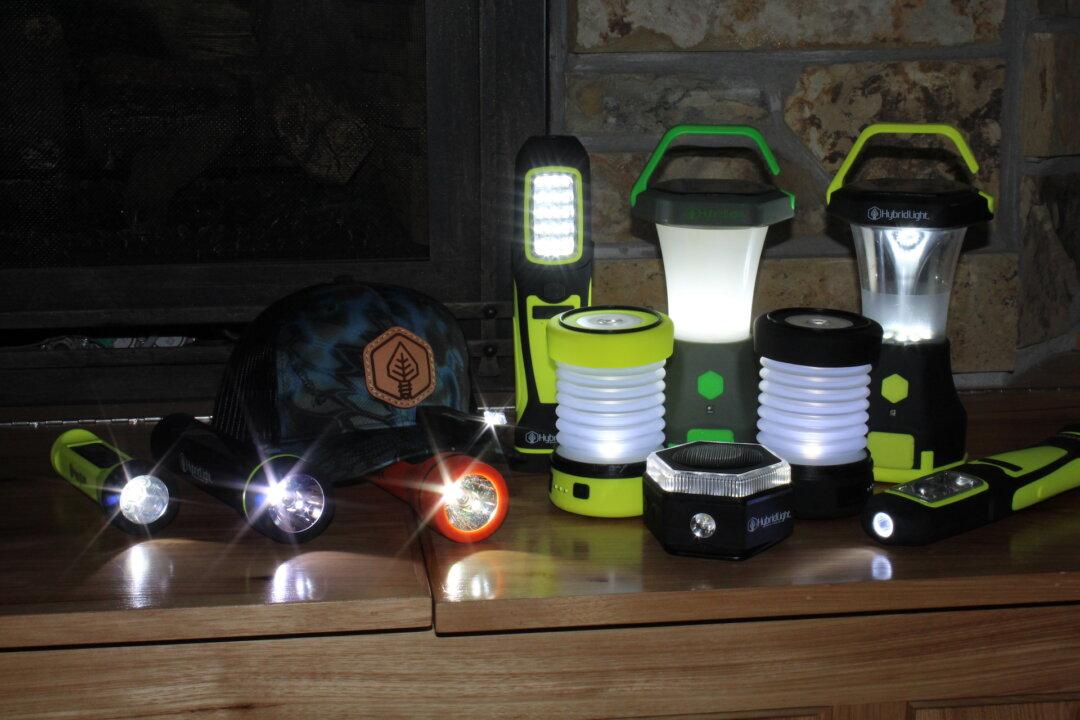Summer is RV season, when RVs (recreational vehicles) function like magic carpets, taking the occupants wherever they want to go. Even better, depending on the type and size of RV chosen, it isn’t always necessary to give up many of the comforts of home.

Van-based campers are perfect for spontaneous adventures for solo travelers, couples, or a family with a young child, and can double as daily transportation. katyagorphoto/Shutterstock






